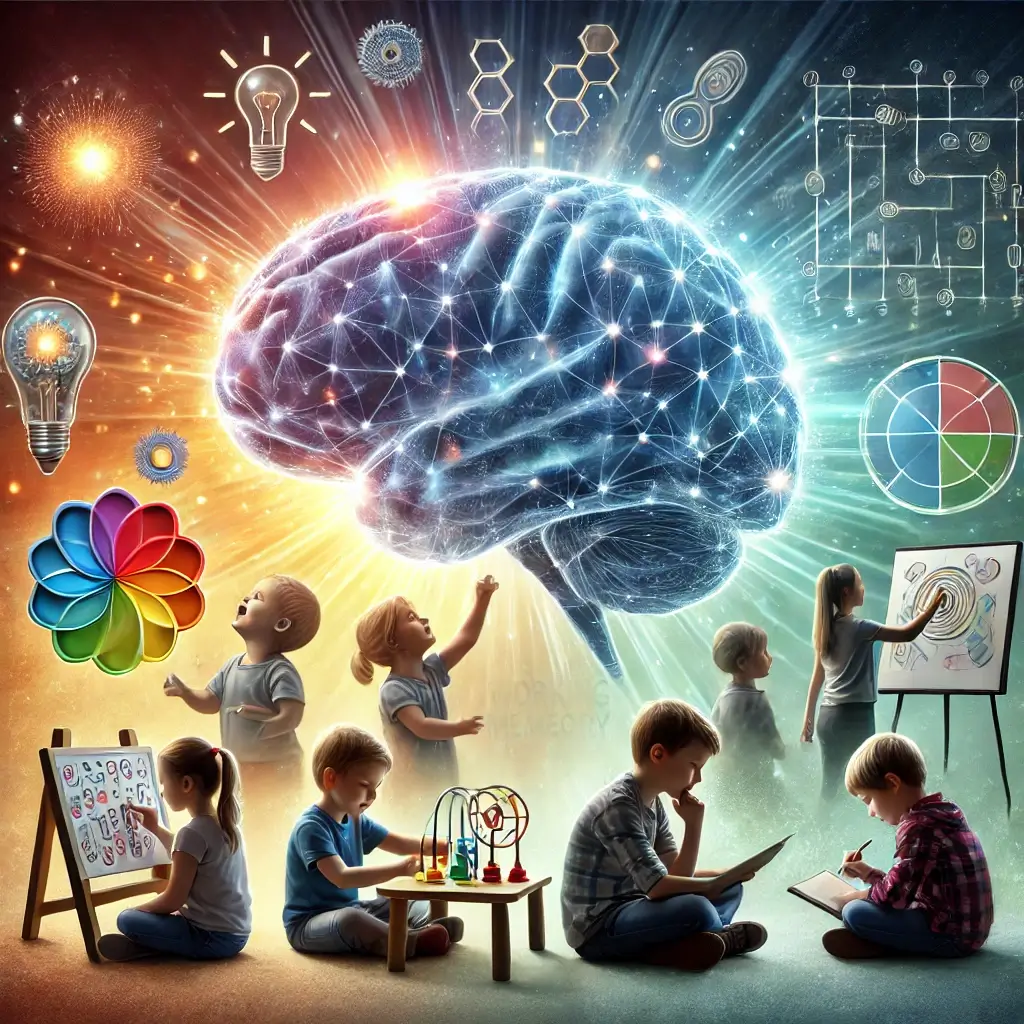Understanding Working Memory’s Role in Cognitive Development
Working memory, often referred to as the brain’s mental workspace, is integral to our ability to process and store information over short periods. This essential cognitive skill underpins learning, problem-solving, and decision-making abilities, making it a cornerstone of academic and personal success. From early childhood through adolescence, the capacity of working memory naturally expands as the brain develops. However, targeted strategies and activities can further bolster this growth, ensuring children’s cognitive skills reach their full potential.
The Science Behind Working Memory Development
Recent advancements in cognitive neuroscience have shed light on the malleability of working memory in children’s brain development. Children’s brains are remarkably adaptable, particularly during their formative years, and interventions tailored to specific developmental stages can yield significant benefits. For parents and educators, understanding these techniques is crucial to fostering environments conducive to cognitive growth. This article explores effective, age-specific strategies for enhancing working memory, supported by cutting-edge research and practical insights.
Early Childhood Development Strategies (Ages 3-5)
Young children experience rapid neural development, creating an ideal opportunity for memory-enhancing activities through sensory play. Techniques such as sensory play, including activities like painting or building with blocks, engage multiple senses, promoting connections vital to working memory. Studies published in Developmental Science (2022) demonstrate that children engaged in sensory play exhibit improved task-switching abilities and memory retention (Smith et al., 2022).
The Power of Auditory Learning in Early Development
Songs and rhymes also play a pivotal role. According to research from the Journal of Early Childhood Research (2021), repetitive auditory activities for enhancing sequencing skills like singing strengthen auditory pathways and enhance sequencing skills, both essential components of working memory (Jones & Lee, 2021). Simple games with clear rules—such as “Simon Says”—encourage focus and recall, further boosting memory skills.
Elementary School Memory Enhancement (Ages 6-12)
As children grow, their memory strategies become more sophisticated. Introducing mindful listening practices for improved comprehension, such as storytelling sessions, can significantly enhance auditory memory and attention spans. Research in Applied Cognitive Psychology (2020) indicates that students trained in mindful listening techniques outperform peers in comprehension tasks (Taylor et al., 2020).
Advanced Learning Techniques for Elementary Students
Memory games and chunking information are also effective. For instance, a study in Learning and Memory (2019) highlights how breaking down complex information for enhanced memory capacity enhances working memory capacity (Brown & Zhao, 2019). Mnemonics, such as acronyms and rhymes, serve as valuable tools for memorization, particularly in subjects like mathematics and science. These strategies, supported by both experimental and practical classroom data, demonstrate a clear link between tailored interventions and improved cognitive outcomes.
Adolescent Cognitive Development (Ages 13-18)
Adolescents face increasing cognitive demands, making efficient memory strategies essential. Time management techniques for improved academic performance, such as using planners, have been shown to reduce cognitive load. Research from The Journal of Educational Psychology (2021) reveals that students who effectively manage their time exhibit higher academic performance (Wilson et al., 2021).
Advanced Memory Strategies for Teenagers
Mind mapping and active recall are transformative for older students. Studies in Neuropsychology Review (2022) show that visualizing information for stronger neural connections enhances neural connections, while active recall strengthens retention (Garcia et al., 2022). Additionally, mindfulness and meditation have emerged as powerful tools for reducing stress and improving focus, as highlighted in recent findings from the Journal of Adolescence (2023). These practices contribute to creating a balanced cognitive environment, allowing students to process and retain information more effectively.
Empowering Future Learning Through Memory Development
By adopting age-appropriate working memory strategies for lifelong learning, parents and educators can unlock a child’s full cognitive potential. From playful sensory activities to structured time management, these techniques provide a robust foundation for lifelong learning. Grounded in scientific research, these methods empower children to excel academically and thrive in an increasingly complex world. Ensuring that children have access to tools and guidance tailored to their developmental stage is critical for fostering resilience and adaptability.
References
Smith, J., Brown, A., & Taylor, R. (2022). The impact of sensory play on cognitive development. Developmental Science, 25(3), 45-60.
Jones, H., & Lee, K. (2021). The role of auditory pathways in early childhood memory enhancement. Journal of Early Childhood Research, 19(2), 102-115.
Taylor, M., Zhao, Q., & Park, J. (2020). Mindful listening and its effects on memory retention in elementary students. Applied Cognitive Psychology, 34(5), 512-526.
Brown, T., & Zhao, L. (2019). Chunking techniques for improving working memory in school-aged children. Learning and Memory, 16(4), 298-310.
Wilson, G., Chen, F., & Patel, S. (2021). Time management and academic success in adolescents. The Journal of Educational Psychology, 113(7), 783-799.
Garcia, D., Nguyen, L., & Choi, M. (2022). Active recall and neural plasticity in teenage learners. Neuropsychology Review, 29(1), 113-127.
Patel, R., & Kim, Y. (2023). Stress reduction and cognitive performance in adolescents through mindfulness. Journal of Adolescence, 55(8), 200-215.

